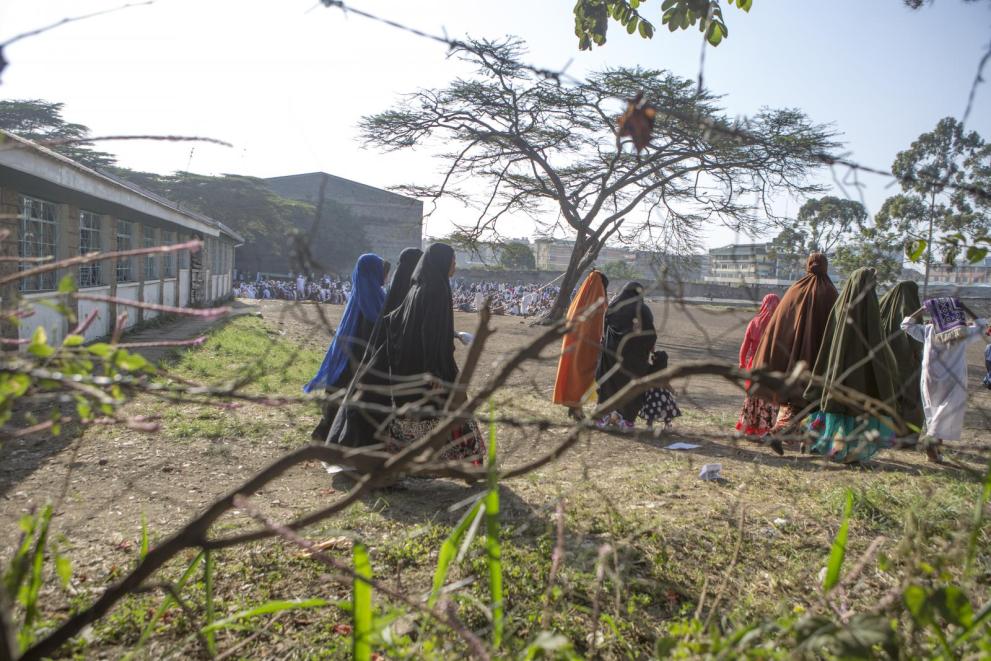
Women’s role in violent extremism, the impact on their lives and the coping mechanisms they use when they become widows is often misunderstood. Those were some of the findings that came out of a compendium of research studies that was commissioned as part of the Conflict Prevention, Peace and Economic Opportunies programme in Kenya. Research had looked at the nature of women’s involvement as supporters, recruiters and involuntary recruitees.
The studies were launched in Nairobi Kenya on 6th June and attracted debate amongst a wide range of practitioners, researchers and policy-makers concerned with how to incorporate gender issues into programmes that seek to counter violent extremism. Published in The African Review, the research was a collaboration between the Trust Fund’s Strengthening Resilience to Violent Extremism programme (STRIVE II) and the French Institute for Research in Africa (IFRA). The four Kenyan research studies examined women’s involvement in violent extremism and interrogated the expectations and assumptions that compel their recruitment, as well as the impact of extremist violence on women.
An investigation of women being involuntarily recruited by other women into violent extremist organisations was the work of Fathima Azmiya Badurdeen. She spoke to women who had returned home to the coastal region of Kenya and found that deception and coercion featured strongly in their accounts. It highlighted why some women became recruiters for organisations like al Shabaab and how they utilise their social networks. Looking at a very different demographic, a study by Associate Professor Fatuma Ahmed Ali looked at why women students in Kenyan universities, and who are therefore from more privileged backgrounds, became involved in violent extremism. She found that recruiters often appeal to societal expectations, such as marriage, and play on women’s sense of independence and freedom to recruit them into violent extremist groups.
The impact and coping mechanisms of women widowed because of violent extremism was studied by Professor Halimu Shauri. His research captured the physical, psycho-social, emotional, economic and structural repercussions experienced by these women. In response to their experience he recommended establishing systems of welfare support, psychosocial counselling and community reconciliation. Analysing the nature of the stories that women tell after having travelled to Somalia was the work of Professor Hassan Mwakimako. He found social constraints and the sense of victimisation experienced by women coloured the way they tell their stories and justify their actions to fit back into mainstream society.
The studies were introduced in the special issue by a paper written by the STRIVE II team that discussed the existing literature and placed the research within the debate on gender and violent extremism. These locally-inspired studies formed the first of a series of projects commissioned under the programme’s research strand that seeks to improve understanding about the underlying factors behind violent extremism. Future studies will look at links with urban crime, clan tensions in Kenya’s North East region and conflict around land ownership at the Coast. STRIVE II is a three-year programme that seeks to reduce radicalisation, recruitment and support for violent extremism in Kenya. The studies support the #SheIsWe campaign that seeks to empower women, their role and their stories.
Details
- Publication date
- 14 June 2018
- Region and Country
- Kenya
- Thematic
- Greater economic and employment opportunities
- Partner
- GIZ
- Royal United Services Institute
- Red Cross Kenya
